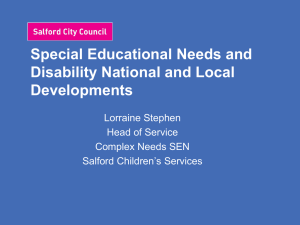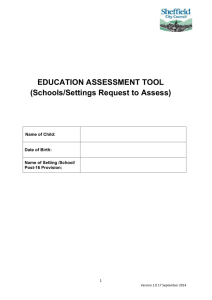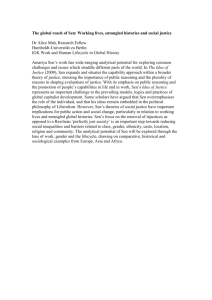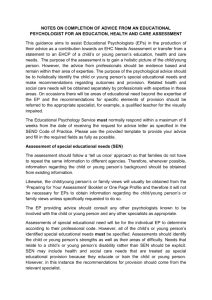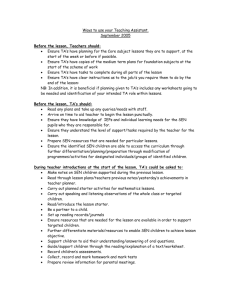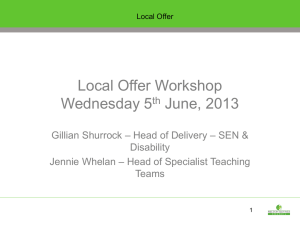Code of Practice 2014 Summary of changes
advertisement
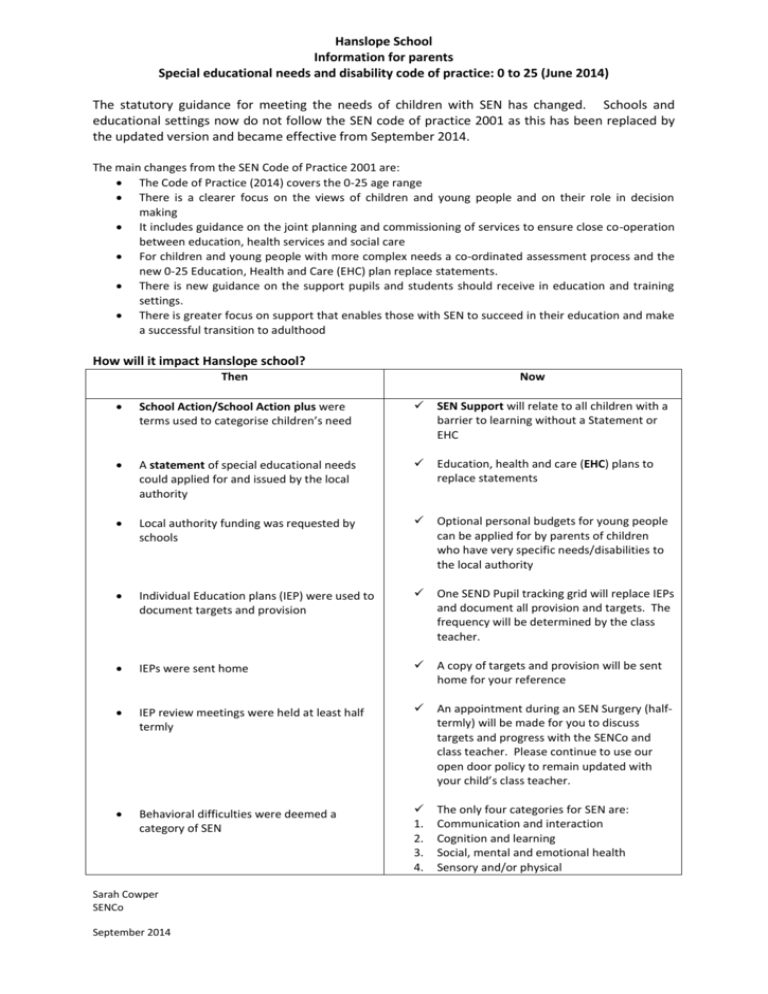
Hanslope School Information for parents Special educational needs and disability code of practice: 0 to 25 (June 2014) The statutory guidance for meeting the needs of children with SEN has changed. Schools and educational settings now do not follow the SEN code of practice 2001 as this has been replaced by the updated version and became effective from September 2014. The main changes from the SEN Code of Practice 2001 are: The Code of Practice (2014) covers the 0-25 age range There is a clearer focus on the views of children and young people and on their role in decision making It includes guidance on the joint planning and commissioning of services to ensure close co-operation between education, health services and social care For children and young people with more complex needs a co-ordinated assessment process and the new 0-25 Education, Health and Care (EHC) plan replace statements. There is new guidance on the support pupils and students should receive in education and training settings. There is greater focus on support that enables those with SEN to succeed in their education and make a successful transition to adulthood How will it impact Hanslope school? Then Now School Action/School Action plus were terms used to categorise children’s need SEN Support will relate to all children with a barrier to learning without a Statement or EHC A statement of special educational needs could applied for and issued by the local authority Education, health and care (EHC) plans to replace statements Local authority funding was requested by schools Optional personal budgets for young people can be applied for by parents of children who have very specific needs/disabilities to the local authority Individual Education plans (IEP) were used to document targets and provision One SEND Pupil tracking grid will replace IEPs and document all provision and targets. The frequency will be determined by the class teacher. IEPs were sent home A copy of targets and provision will be sent home for your reference IEP review meetings were held at least half termly An appointment during an SEN Surgery (halftermly) will be made for you to discuss targets and progress with the SENCo and class teacher. Please continue to use our open door policy to remain updated with your child’s class teacher. Behavioral difficulties were deemed a category of SEN 1. 2. 3. 4. The only four categories for SEN are: Communication and interaction Cognition and learning Social, mental and emotional health Sensory and/or physical Sarah Cowper SENCo September 2014


